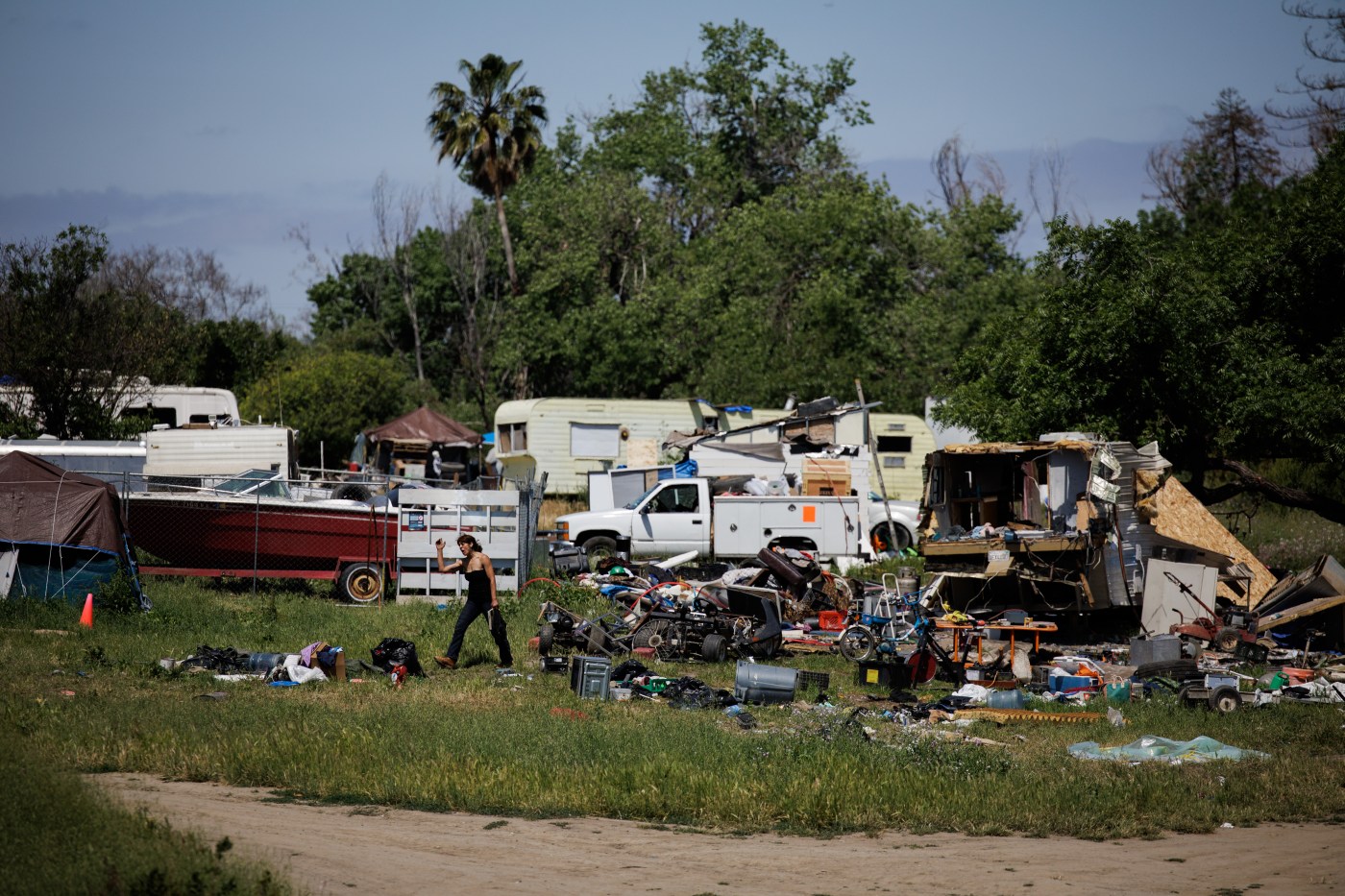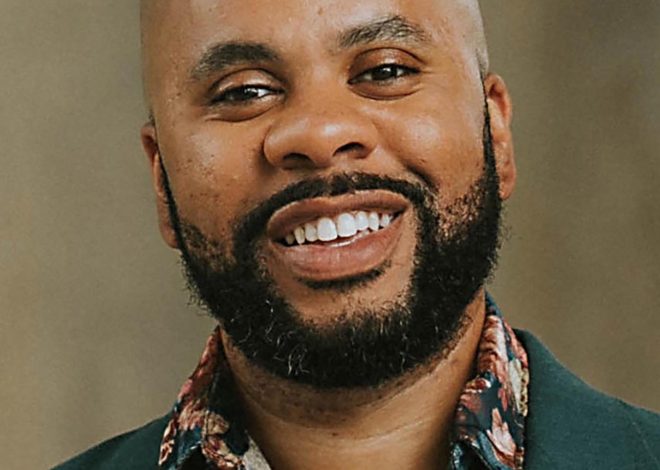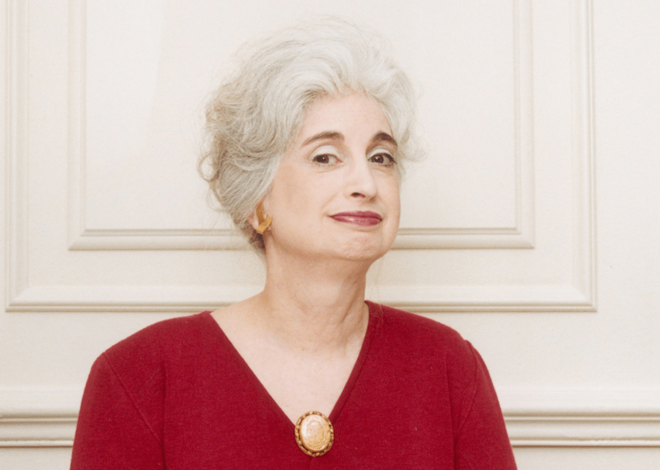
Prop 36 aims to force drug offenders into treatment. Would it help solve homelessness?
San Jose Mayor Matt Mahan wants you to know that Proposition 36 is about more than just cracking down on retail crime.
Mahan — one of the statewide ballot measure’s most vocal supporters — argues that passing the initiative to toughen penalties for low-level theft and drug crimes would also help solve California’s intertwined homelessness and addiction crises by making it easier for judges to order drug offenders into treatment.
“When someone is repeatedly breaking drug laws and using meth and fentanyl in public parks and passed out high on hard drugs on the sidewalk, we have a duty to intervene,” he said.
Opponents, however, note the measure would cut funding to some of the state’s already overextended drug and mental health programs that would be tasked with accepting more patients ordered into their care. Some also question the effectiveness of court-mandated treatment and argue the proposition is a punitive solution that fails to address the root causes of homelessness.
Proposition 36 seeks to roll back parts of a landmark crime-reform measure to alleviate overcrowded state prisons that voters approved in 2014. That law, Proposition 47, reduced penalties for drug possession and theft under $950 to misdemeanors. It also directed millions of dollars that were saved by locking up fewer people toward treatment programs.
But after videos of brazen retail thefts flooded social media — reflecting crime surges in some cities — and statewide opioid deaths more than doubled since the start of the pandemic, many blamed the 2014 reform measure. In June, Proposition 36 qualified for the ballot with the support of many prosecutors, law enforcement unions and lawmakers from both parties.
Mahan’s fellow Democrat, San Francisco Mayor London Breed, also backs the proposition. Democratic Oakland Mayor Sheng Thao has declined to take a position while at the same time signaling support for tougher criminal penalties.
Proposition 36 would empower district attorneys to charge people caught stealing or possessing drugs of any value more than twice with a felony. It would also create a “treatment-mandated felony” that would allow judges to order repeat drug offenders into a treatment program or impose jail or prison time.
Measure backers argue that the new felony charge is needed to reverse a dramatic drop in participation in drug courts after Proposition 47. One report found participation statewide fell 67% between 2014 and 2018. Mahan linked the decline to a 60% surge in homelessness over the past decade, bringing the state’s unhoused population to more than 181,000.
“You see a decline in participation in drug court — it follows from that that you see less engagement for treatment from the people who most need it,” he said.
San Jose Mayor Matt Mahan speaks during a press conference, where he announced a plan to clear 1000 homeless people from the city’s creeks and rivers over one and a half years, on Friday, March 1, 2024, in San Jose, Calif. (Dai Sugano/Bay Area News Group)
A statewide survey by UCSF’s Benioff Homelessness and Housing Initiative, however, found that although regular drug users tend to be the most visible on the street, they make up only about a third of California’s homeless population. While supporting expanded treatment, researchers generally agree the most impactful solution for ending homelessness is adding very low-income housing with supportive services.
One of the researchers behind the survey, Dr. Margot Kushel, pointed to studies finding no evidence that compulsory treatment led to better outcomes for patients. She said court-ordered programs sometimes fail to address patients’ specific needs and argued judges generally aren’t equipped to make treatment decisions.
“We would never ask judges to decide who gets in-patient chemo and who gets outpatient chemo,” Kushel said.
Proposition opponents also contend that the state’s treatment programs already are struggling to accept everyone who wants help and funding cuts triggered by the measure would only make matters worse. The nonpartisan Legislative Analyst Office found the proposition would slash state spending on drug treatment and other services by tens of millions of dollars a year. Last year, the estimated savings totaled $95 million.
Bay Area Community Services, which runs a jail diversion program in Alameda County for people with mental health and drug issues, could lose funding for the program should the proposition pass. The nonprofit has no position on the measure but in a statement said incarceration and felony prosecution “are not effective methods of alleviating homelessness.”
Mahan responded to the funding concerns by pointing to Proposition 1, a $6.4 billion mental health bond that state voters narrowly approved in March. He said the bond should make up for the cuts while paying for more than 10,000 new treatment beds and supportive housing units, though the money will take a few years to go out the door.
Related Articles
San Jose’s Pacific Motor Inn reopens as supportive housing
San Mateo County District 4 race: East Palo Alto’s Lopez and Gauthier face off
Children live in one of San Jose’s most dangerous encampments
After seeking homeless spending cuts, Newsom announces $170 million to bring Bay Area residents off the street
Candidates looking to fill open Berkeley council seats weigh in on encampment policy
Yet Gov. Gavin Newsom, who spearheaded the mental health bond, has said the funding can’t be easily cashed out to fulfill the pledges of Proposition 36. He’s described the measure as a dangerous regression to tough-on-crime policies of the past.
During a news conference in September, Newsom, while not mentioning Mahan by name, said, “I saw a lot of politicians going like this,” raising his index finger in the air, “Which way is it going?”
In defiance of Newsom, Mahan has helped raise hundreds of thousands of dollars for the measure and traveled the state campaigning for it — raising speculation he could be trying to raise his profile for a future run for higher office.
Mahan dismissed the conjecture as “political nonsense,” maintaining he’s simply following through on his promise to solve the “most foundational issues” facing San Jose.
Regardless, it appears likely Mahan has backed a winner. According to an October poll by the Public Policy Institute of California, 73% of voters support Proposition 36.


